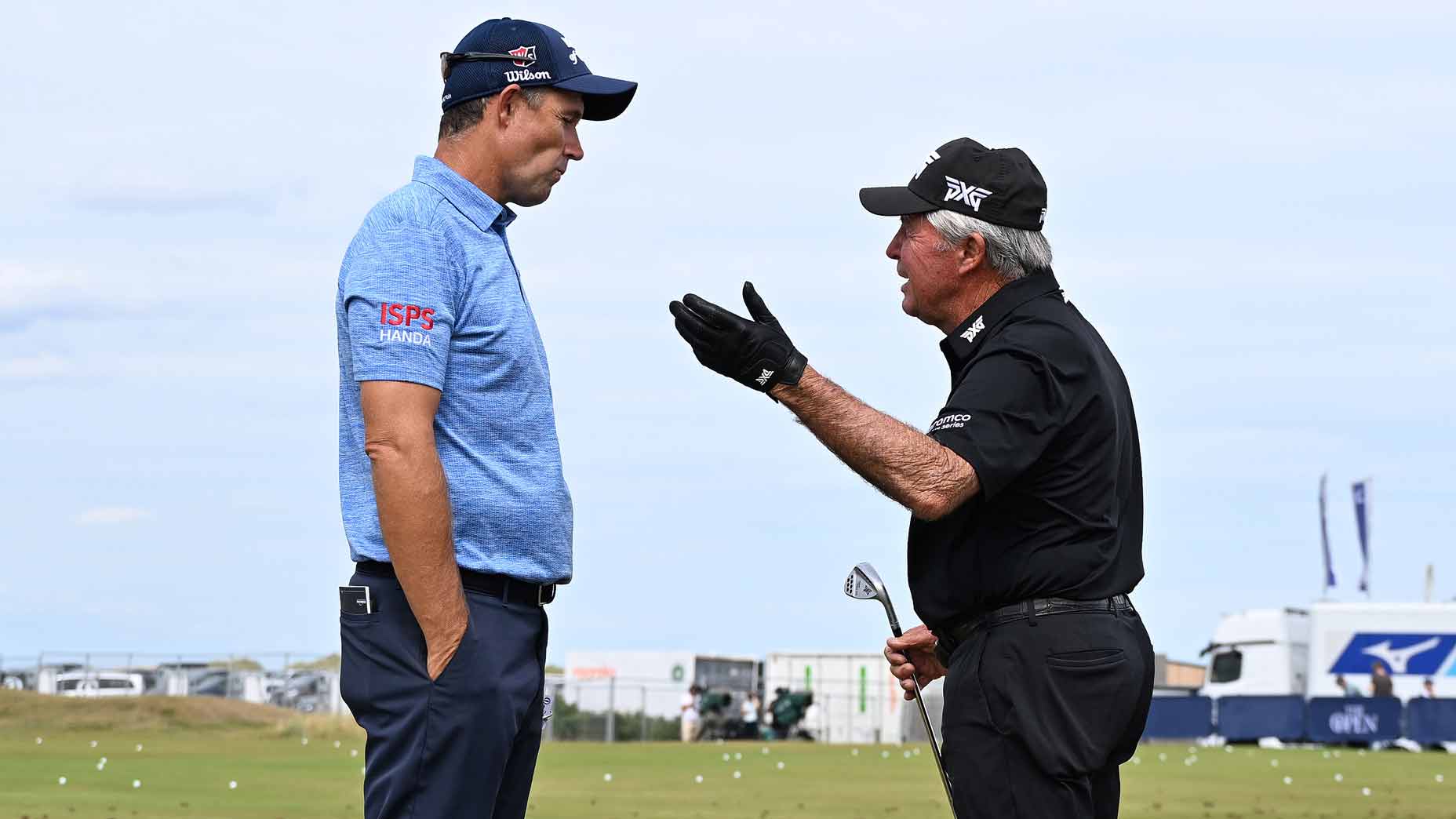


Swing advice can come in all forms — but not all of it is good.
Getty Images
NEWPORT, R.I. — Everyone wants to improve at golf and shoot lower scores. That aspiration lasts forever, and is shared by everyone who’s ever touched a club. From Tiger Woods and Jack Nicklaus all the way down to weekend hackers, the quest for improvement is constant.
Fixing your own swing can feel impossible at times. For whatever reason, though, fixing another player’s swing feels doable. But that unfounded confidence is often misguided. Unless you’re a trained golf pro — or a really good player — doling out unsolicited swing advice should be avoided.
If you pay attention to this bad advice, it’s almost certain to hurt your swing more than help it. So, what are the worst pieces of swing advice? Three-time major winner Padraig Harrington shared some of them ahead of this week’s U.S. Senior Open.
Padraig Harrington is one of the biggest swing nerds in all of golf. Go to a tournament and you’ll probably see him on the range working on one thing or another. But he’s not just obsessed with improving his own swing. He’s keen to help others improve their swings as well.
With that in mind, I asked Harrington if there was a piece of advice that stuck with him as the best during his career. After a quick moment of contemplation, he admitted he was stumped.
“I actually don’t know what the best one I’ve got because there’s all sorts of things at different points in your life that really are important,” he said. “It’s easier maybe to pick up on the worst piece of advice.” And with that, Harrington cited three tips that can hurt more than help…
Having quiet feet during the swing is becoming less and less common at the highest levels, and that’s because active feet are a great way to generate power. If you can engage your feet properly with the ground during the swing, it’s much easier to hit the ball far. This phenomenon is sometimes called “ground reaction forces,” and it’s one of the key moves that helps players generate power.
If you’ve ever struggled with contact, one of the first pieces of advice the uninformed will offer is to “keep your head down.” The advice comes from a well-intentioned place, and the rationale is solid: If you keep your head down longer you’ll keep your eye on the ball and make better contact. But in practice this advice is flawed. If you keep your head down too long, it will restrict your swing and actually hurt your contact.
Harrington made a video about this very subject several years back, and you can check it out below.
When you struggle to hit the ball solid, another piece of advice you’ll often hear is to slow things down. Moving the clubhead more slowly should make achieving solid contact more likely, right? Well, it might — but it’ll also cost you dearly when it comes to generating power. First, teach yourself to swing the club hard. Then you can focus on contact. If you’ve got power, it’s a huge weapon that is tough to teach.